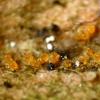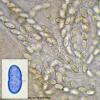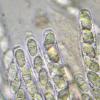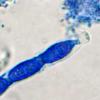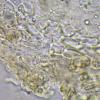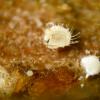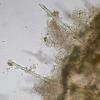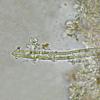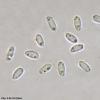
16-03-2014 21:25
Bonsoir à tous,Trouvé à Roche-à-Frêne, Ardenn

21-03-2014 22:19
Hola a todos!Otra especie en Carex pendula, hojas

20-03-2014 09:09
 Miguel Ángel Ribes
Miguel Ángel Ribes
Good morningTomás Illescas and me have study this

19-03-2014 19:51
 Maren Kamke
Maren Kamke
Hi everybody,I need your help again.I continue to

18-03-2014 22:52
Salvador TelloHola.Tengo estos hongos que crecen en restos de gr

18-03-2014 01:19
Roland LabbéBonjour ! Voici un Lachnellula willbommii probab
Pseudonectria?
Björn Wergen,
22-03-2014 00:11
 Hi friends,
Hi friends,I have a collection from Braga, Portugal, on indetermined plant debris (very flat stems with hairs on the surface, I do not know what that is). On this substrate I have found a nectrioid species with a Volutella anamorph and Gibberella cyanogena with a Fusarium anamorph. According to Rossman 1999, Volutella is a common anamorph of the genus Pseudonectria, which unfortunately has one septated ascospores. Is there any other idea what this one can be?
Fruitbodies are about 200-260µm in diametre, orange-yellow and with prominent papilla, with a 7-15µm broad wall and 8spored asci about 70-90x6,5-8µm. Spores are 8,2-10,3x4-4,5µm, 2celled and with dotted surface. KOH negative.
Thanks in advance for any help.
regards,
björn
Walter Gams,
22-03-2014 10:17
Re : Pseudonectria?
Dear Björn, It seems that you have the rare teloeomorph of the very common Volutella ciliata. volutella is heterogeneous as shown by Gräfenhan et al. in Stud. Mycol. 68: 79-113. The teleomorph of Volutella s. str. was formerly in Cosmospora, but is now segregated and the generic name Volutella will be retained for these fungi. On the other hand, Volutella buxi is now in Pseudonectria buxi. In a study of these fungi many years ago, Gary Samuels confused this fungus with the teleomorph of V. minima. A detailed description of the teleomorph with molecular study of an isolate would be worth while.
Björn Wergen,
22-03-2014 11:26

Re : Pseudonectria?
Dear Walter,
so can I send you the collection for further studies? I am very interested in this.
regards,
björn
so can I send you the collection for further studies? I am very interested in this.
regards,
björn


